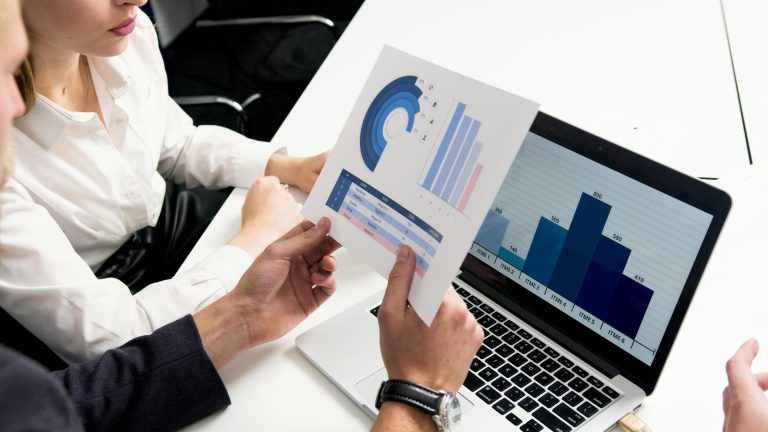How to Protect Your Online Privacy: Best Practices for 2025

If you think your data is safe just because you have an antivirus and won’t click on “free iPhone,” I have bad news. Privacy is no longer something you have — it’s something you constantly have to guard.
Every time you log in to a new service, accept cookies without thinking or leave your phone number on a “raffle” form, you are giving away a piece of yourself. Little by little, you become the product.
In 2025, technology knows more about you than your family. Netflix knows your taste, Google your fears, and Instagram knows how you feel before you even admit it. All this is not a conspiracy theory — it is reality. And the sooner we accept that the sooner we can take action.
This guide is for people who want to keep at least a part of their freedom in the digital world. And don’t worry — you’re not being asked to become a hacker, just not to be an easy target.
The Most Common Threats to Your Digital Privacy

Here’s a truth you won’t hear very often: your privacy isn’t usually lost to a “super hacker” in a dark room. You’re losing it because you’re not reading app permissions. Because you use the same password for three different accounts. Because you connect to the coffee shop Wi-Fi and check your bank account. And because it’s easier for you to say “Allow everything” than to click through the settings.
Smart devices are particularly sneaky. A TV that offers you smart features is very likely sending data about what you watch, when, and for how long. The same goes for your smartwatch, refrigerator, or vacuum cleaner. You don’t believe it? Read the privacy policy. Spoiler: you’ll be shocked.
Apps are another level of hell. We play games that require access to a microphone. We install image filters that are automatically uploaded to all our accounts. And when the data surfaces somewhere on the Internet, we say: “It happens to everyone.” That’s why Bruce Bet uses the best cybersecurity practices to make sure you don’t fall into the “everyone” category.
And yes, public Wi-Fi networks — they are playgrounds for cyber predators. If you don’t use protection (read: VPN), everything you do can be intercepted. Literally everything.
So, what is the biggest threat? Our own carelessness. Fortunately, this can be corrected.
Technological Tools That Protect You
If you want your privacy to be truly protected, you’ll need to use tools that aren’t just cool but actually work. No, your phone is not safe because you keep it in your pocket. No, not even a “free” antivirus will save you from real threats. You don’t have to become a technical expert, but you do have to put up barriers that can protect you:
- VPN (Virtual Private Network): It protects your internet connection from snooping. If you’re still using the internet without a VPN, seriously think about it. A VPN is like your digital shield, protecting your connection from eavesdropping and spying while you surf. But make sure you use a good VPN and not some free one that actually sells your data. If you want privacy, you have to invest in quality;
- Privacy browsers: If you trust Google, maybe it’s time to rethink your decisions. Browsers like Brave or Firefox offer a high level of privacy and security, with options to block ads and tracking. And what’s even better, they allow you to browse the Internet anonymously;
- Data anonymization: If you don’t want to be tracked across the Internet, consider using a tool like SimpleLogin. It allows you to create temporary email addresses that you can use only for specific purposes. In this way, neither your email address nor your phone number become a target for unwanted marketing campaigns.
- Password Managers and 2FA: Strong passwords and extra protection for your accounts.
The question that arises is: why not take advantage of these tools when they have become so easy to use? Privacy is not a luxury but a necessity.
How to Protect Privacy on Social Networks?

We all love social media, but do we love the fact that everything we post there becomes public domain? Have you ever thought about how much information about you ends up online, even if you are a “private” user?
First, the boundaries of privacy. Every network has its own rules, but you also need to set boundaries for what you share. You might want to share just a photo from the weekend, but checking in at a restaurant tells potential criminals that you’re out. When you post a status, think about how that information can be used.
Review your privacy settings. Don’t wait until your Facebook is set to default (which means everyone can see everything). Set who can see your posts, friends, photos, and information. Next, make sure there are no apps that have excessive access to your data. Control who has permission to tag you in photos. Finally, when sharing information, ask yourself, “Do I really want everyone to see this?”
So, if you love social media, put protection as a foundation. And if you feel like you’re exposing yourself too much, you can always take a break.
Rights and Responsibilities of Users: The Law in the Era of Digital Privacy
Now, all these protections don’t mean much if you don’t know your rights. And here’s what’s really important: No one likes to feel like they’re just a number in the system. In today’s digital world, your right to privacy is something you can and should protect, as privacy law changes almost as fast as technology advances.
The question is: is your data really in your hands? In many countries, there are laws such as GDPR in the EU that allow you to request the data that companies have about you, to change it, and even to delete it. Yes, you heard right — you can tell them to delete all the information they keep about you. If you live in a country where such a law does not exist, it’s time to start getting involved. Otherwise, you will be a “data mining” product for large corporations.
But let’s be real: for all the privacy terms we accept every day in small ways, we’re often busy trying to make money online or dive into new apps that “make our lives easier.” Before you click “accept the Terms of Use,” consider what you are really giving away. If someone offers you free services, be sure to check what’s behind the freebie.
Always remember: everything has a price. And even your privacy.






